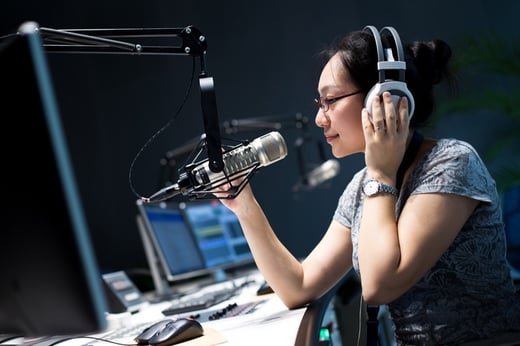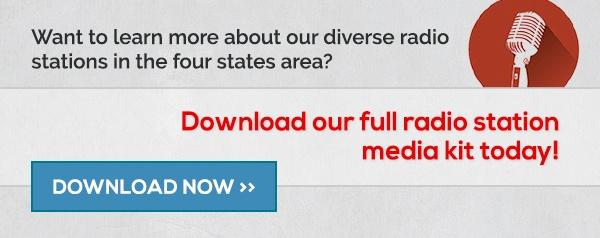 When it comes to marketing healthcare, radio might not be the first thing that comes to mind. However, 2017 is a great year for healthcare brands, practitioners, and hospitals to consider marketing themselves on the radio.
When it comes to marketing healthcare, radio might not be the first thing that comes to mind. However, 2017 is a great year for healthcare brands, practitioners, and hospitals to consider marketing themselves on the radio.
That’s because advertising on radio is becoming more cost efficient than ever because of the return seen from radio advertising.
So, although radio isn’t as commonly used by healthcare professionals and hospitals as you might think, it’s an excellent channel that all health care providers should consider. With that in mind, here are four ways hospitals can use radio to boost marketing ROI.
1. High Frequency and Repetition
When it comes to successful marketing - whether it’s radio, print or digital - the two major keys are consistency and frequency. When listeners hear radio advertisements, they’re likely driving or doing some other activity, and not likely to need to visit a hospital right away. However, radio provides a cost-effective (and sometimes entertaining) way to get your message out at the frequency you need to create new customers. Whether it’s a catchy jingle or a great promotion, if they’ve heard it enough on the radio, your hospital will be at the top of mind when the time is right.
2. Personality & Influencer Marketing
The term “Influencer Marketing” is currently all the rage, but most people (mistakenly) associate it primarily with digital and social media. However, radio shows and personalities connect with their audience on a much deeper level than celebrities on Instagram. People tune into their local morning show for news, talk, advice, and even critical information in the event of emergency. As a hospital, you can leverage this deep level of trust between personalities and their listeners by advertising on certain radio shows. Take advantage by partnering with these radio personalities, and potentially even tie in some form of cause marketing in your campaign. Running radio ads for a health-related fundraiser your hospital is sponsoring, for instance, will piggyback on local personalities’ credibility, and establish your hospital as trustworthy and part of the community. And when listeners call in, they’ll be able to ask questions to the trusted host and interact with your brand in a way that’s not possible in other mediums.
3. Establish Expertise Through Education
Radio is also an engaging and impactful way to educate the public about certain health issues, position your hospital as a leader in the field, and encourage people to be more proactive in their approach to healthcare. By giving your audience “free” information about important health-related topics over the radio, you establish trust with the community and stay top of mind when people schedule their next appointment. By educating patients over the radio, they’ll come to see your hospital as not just a place to go when they get sick, but a lifelong partner is maintaining good health.
4. Target Specific Audiences
One of the biggest ways that radio can be used to boost marketing ROI is by targeting specific audiences, by specific station and daypart. Unlike many other marketing channels, demographics for most formats and time slots are clearly understood, so that when your hospital goes to advertise on radio, they have a good idea of who’s listening. If your medical facility specializes in cosmetic surgery, for instance, you might choose to advertise on station formats like News Talk that tend to have more affluent listeners. This minimizes the amount of waste in your marketing budget, as you’re not spending money marketing to people who likely have no interest in your hospital or service.
Hospital advertising isn’t the easiest game in the world. After all, you’re not marketing something “sexy” like a new car. To be successful you have to earn trust. Hospitals can effectively use radio to boost marketing ROI by leveraging local personalities, providing critical education, and advertising at high frequency to their target audience. The fact that radio is currently affordable, reliable, interactive - and widely available - make it a great choice for healthcare marketers in 2017.

